Mung Bean Coconut Curry
This mung bean coconut curry is the best curry you will ever have… it makes a lover out of people who think they don’t like curries. You have to try it!.
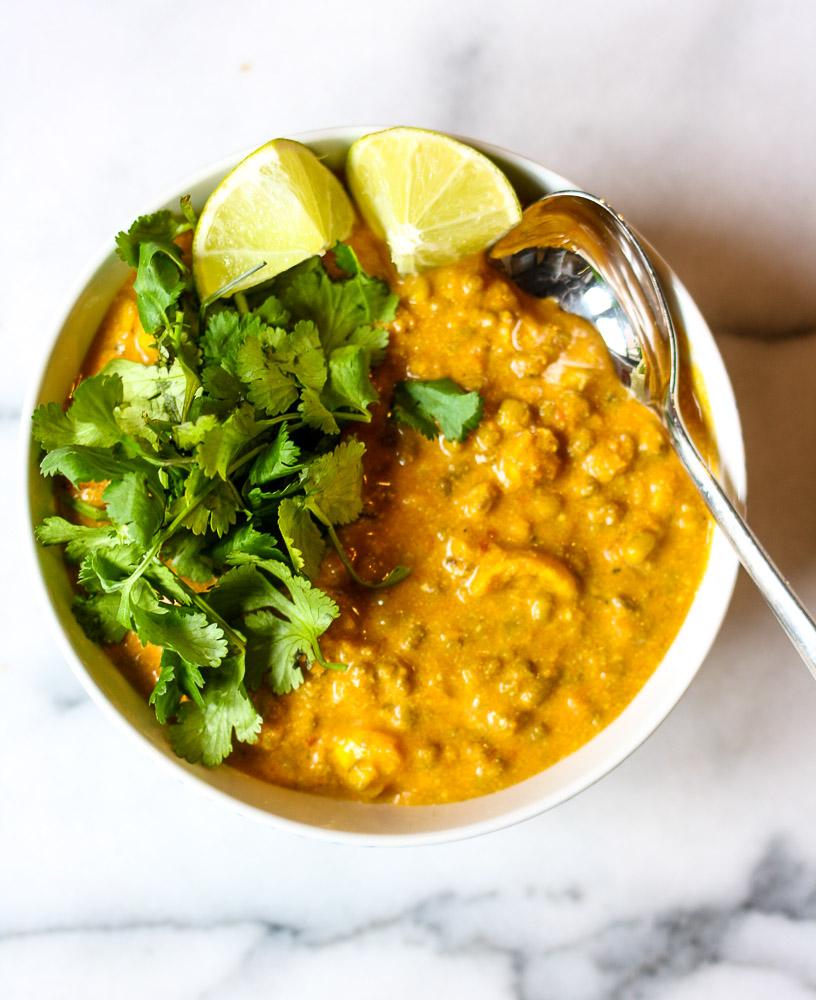
When I was writing my book — The Chinese Medicine Cookbook, I necessarily had to test out tons and tons of recipes. I tested everything from smoothies to stews to salads. But I wanted to make sure that I included a lot of recipes that used traditional Chinese ingredients as a way to pay homage to the culture that created my love for Chinese herbs and healing.
This recipe for Mung Bean Coconut Curry is one of those recipes. I’m not sure I had ever really enjoyed mung beans before I created this recipe. The closest I had ever come to feeling love for this ingredient came in the form of pasta. The first grain-free pasta I ever had was mung bean fettuccine and it really was love at first sight for me.
Mung beans are such a healing ingredient. A lot of uncomfortable conditions are caused by us retaining too much heat inside our bodies; mung beans release excess heat. This is a really good thing!
But, here I was trying to create a recipe with actual mung beans. These beans are sold in bags like any other dried bean — they are pretty little green things but I truly didn’t know where to start… and then I saw an amazing recipe by Katie of Hey Nutrition Lady and I knew this awesome recipe was where I would start.

If you are having any digestive issues, download my free Healthy Digestion Food Plan ebook now.
Honestly, when I was putting this recipe together, I figured nobody in my house would be thrilled about mung beans when I served it. So, I decided on a curry, because… well… I love curry but when I serve it here at home everyone puts on “the face”. This seemed like a great opportunity for me because if nobody was going to like it anyway, it might as well be something I like but don’t get to make too often.
Here’s the kicker: I ladled a bowlful for Steve and put it in front of him. He asked no questions so I told no lies. He slurped this bowl up like it was a bowl of his favorite Cheeseburger Soup. `When the bowl was licked clean, I said: “I’m surprised you liked that so much… you don’t usually like curry.” His response: “I don’t like curry but this isn’t curry.” So, there you have it. Make this Mung Bean Coconut Curry and serve it to everyone… just don’t tell the haters what it is!
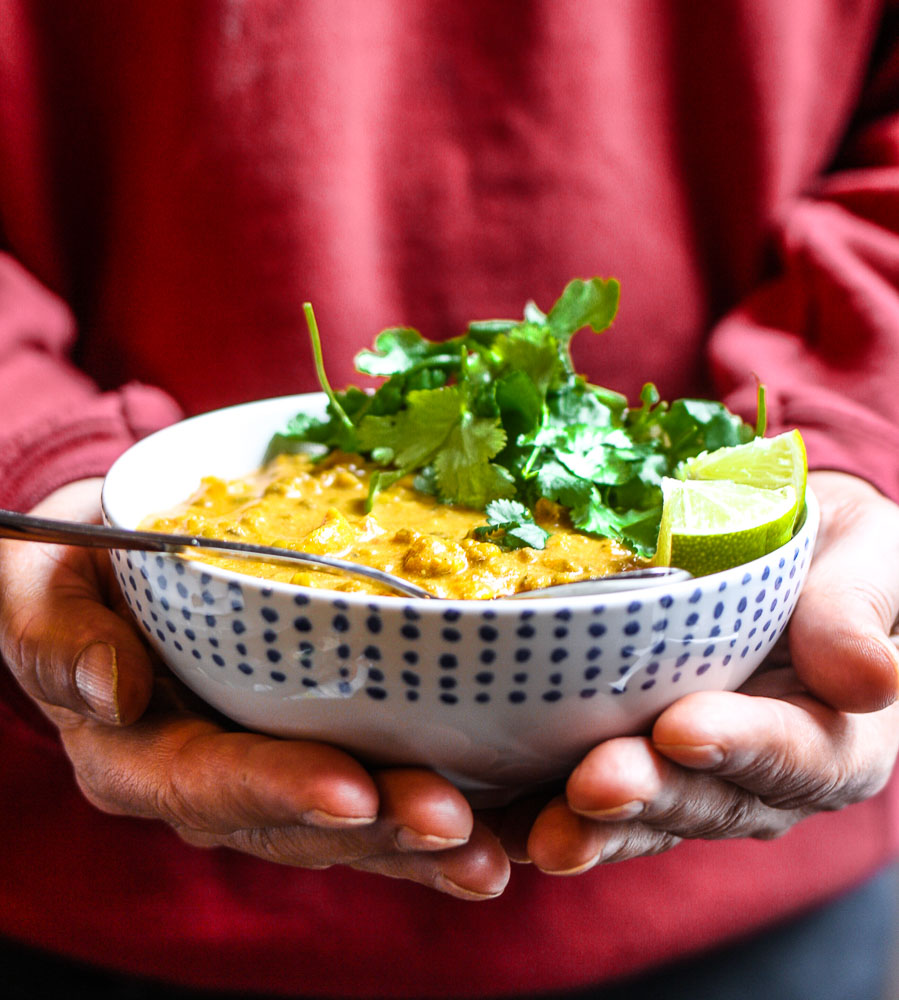
Here are just some of the amazing healing ingredients in this Mung Bean Coconut Curry:
Mung Beans clear heat from your body; they help reduce acne and can help clear up other skin conditions. They are also great to help rid your body of toxins. In China, mung beans are a staple in most kitchens and are eaten often because they provide so many health benefits.
Garlic is amazing in its antiviral and antibacterial capabilities. Garlic is actually a Chinese herb (Da Suan). It’s used to kill toxins and parasites and also to reduce swelling in the body. It’s what I call a great “A” herb: anesthetic, antibacterial, anti fungal, antioxidant, antiviral, etc…
Ginger is also a Chinese herb. In it’s raw form it’s called Sheng Jiang. This herb is especially good during cold weather months and also during seasonal changes. So, when winter is trying to turn into spring, and we (those of us on the east coast) get some of those cold, raw, damp days, ginger will make you feel better and will help boost your immune system. And, when summer is turning into fall, or fall is turning into winter, those are great times to add ginger into your diet, to prevent those winter colds that seem to pop up often. Old folklore shows that ginger was rubbed on scalps to stop baldness. And, in some circles, a ginger paste is still rubbed on arthritic joints to stop pain (don’t try this at home unless you are diagnosed with a cold-condition by an acupuncturist or herbalist).
In Chinese medicine, we use coconut to strengthen the body, reduce swelling, and stop bleeding. Coconut kills viruses, bacteria, and parasites. It’s good for all types of infections and viruses in the body, including the flu, bronchitis, tapeworms, urinary tract infections, and herpes. And perhaps most importantly, it helps you keep your mind sharp and it makes it easier for you to focus. I like to use full-fat canned coconut milk for this curry.
In Chinese medicine, we use tomatoes to aid in digestion and to help detoxify the body. They are also good to combat excess cholesterol, lessen inflammation and curb asthma. Tomatoes can also quench thirst, and they can help fight some kidney infections.
Onions are great for your immune system; they are a natural antihistamine. Recently, I recommended that a patient with bronchitis put sliced raw onions in her socks when she went to sleep… she woke up so much better; they actually can rid the body of bacteria. (I know I’ve told you this before, but it really is awesome!) Onion is a superhero in the food world — especially when you eat it raw, so be sure to also add some raw onion into your diet whenever you can.
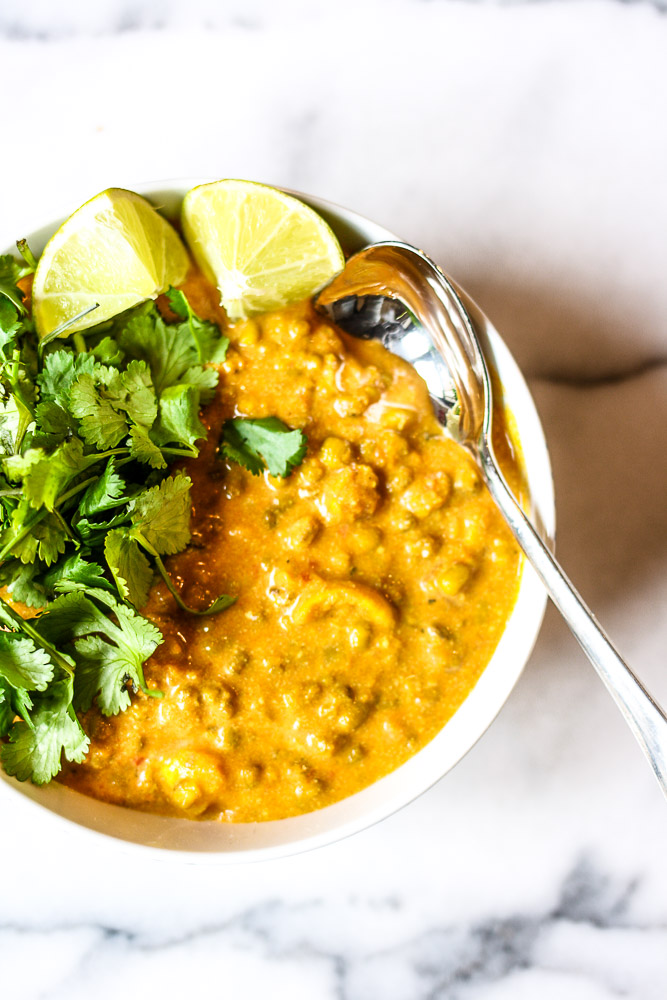
| Mung Bean Coconut Curry | Print |
- 2 Tbs extra-virgin olive oil
- 10 garlic cloves, crushed
- ¼ cup chopped red onion
- 1 14-oz can chopped tomatoes
- 1 tsp cumin
- 2 inches of fresh ginger, peeled and grated
- sea salt and black pepper, to taste
- ¼ tsp (or to taste) cayenne pepper
- 4 cups water
- 1 cup dried mung beans
- 1 13.5-oz can full fat coconut milk
- 1 lime, cut into wedges
- 1 bunch cilantro, roughly chopped
- In large pot, heat the olive oil over medium heat until hot.
- Add the garlic and onion, and saute, stirring, 3 mins.
- Add the tomatoes, cumin, ginger, salt and pepper, and cayenne.
- Cook, stirring often, 5 mins.
- Pour in the water and stir in the mung beans.
- Bring to a boil, then reduce the heat to low, cover the pot, and let simmer for 30 mins.
- Then, uncover the pot and let simmer an additional 15 mins, or until the mung beans are softened.
- Turn off the heat and stir in the coconut milk.
- Ladle into bowls and garnish each bowl with lime wedges and lots of cilantro.
- Enjoy!

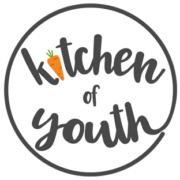
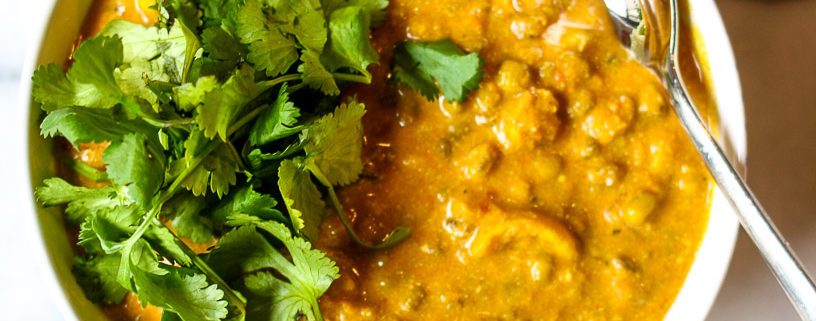
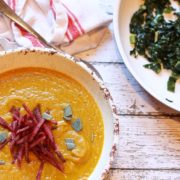
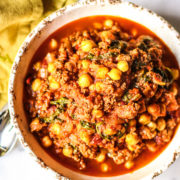
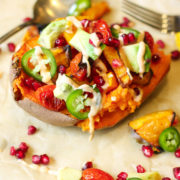
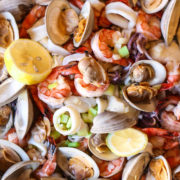
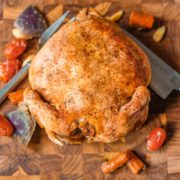

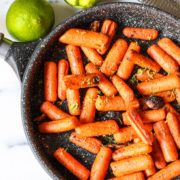
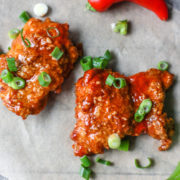
It cooks like there is turmeric or curry powder as is very orange but I didn’t see in recipe
Thanks for writing in… there is no turmeric or curry powder in this dish. I agree, the pic looks like there is, but there is not! It’s a really mild curry that tastes more like a stew with a slight sweet taste. I made it without these other spices because my husband hates traditional curries. I guess my photo lighting was great that day!
I want to make this but I haven’t got any cayenne pepper, is there a different spice/spices I could use pleas
Hi Julie. You can either leave out the cayenne pepper completely — it just won’t be spicy at all. Or, you can add in something else for a little spice — maybe a dash of hot sauce?
Mine had way more liquid left than what I see pictured here but it was still delicious! I’d soaked my mung beans the night before so that could be why. I also added cauliflower the last 10 minutes or so, before removing from heat and adding coconut milk. Thank you! I’ll definitely make this again
Hmmm… I’m glad you liked it! I think you may be right about the liquid being from pre-soaking the mung beans. And actually, it is better for your digestion to soak them, so next time just use less liquid.
Hi there,
I was wondering if you used split mung bean (skinned and is yellow in color) or whole mung beans (green). Sorry if I missed the information. Thank you!
Hi Kate, I use the whole green mung beans. If you use the yellow, let me know how it works!
This looks amazing, could you cook it in a crockpot on low for 4 hours?
I have never tried it in a slow cooker, but I’m thinking it should work fine. Just make sure the beans don’t get completely mushy. Let me know how it goes!
What is the calorie count on this dish?
Hi Mary. I never count calories… sorry but I have no idea.